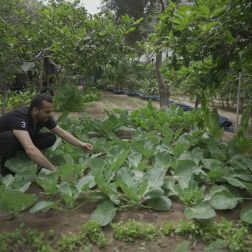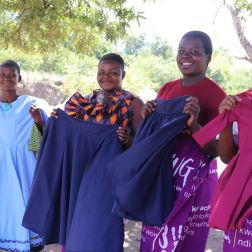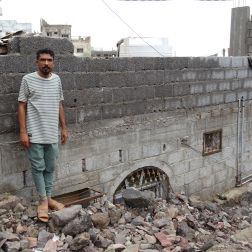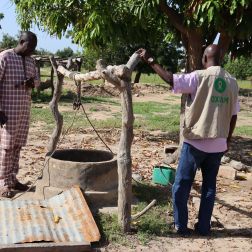- 4 mins read time
- Published: 27th June 2018
The world has turned its back on South Sudan
Oxfam has been working in South Sudan for over 30 years. Since 2017, we have been responding to a deepening emergency, reaching over 500,000 people across South Sudan with life-saving aid. We also implement long-term development projects to advance gender justice and support people to build resilient livelihoods to help beat poverty now and into the future. In this blog, Chief Executive of Oxfam Ireland, Jim Clarken, reflects on his recent trip there.
South Sudan is a country in crisis – a country on the brink of what could well become the world’s worst humanitarian disaster. Yet tragically, for the people of this young nation, their ongoing plight has failed to make the headlines.
For more than four years, the people of South Sudan have been caught up in a brutal civil war. The violence has had a devastating impact on the country’s citizens, millions of whom are suffering from extreme hunger as a result.
More than 4 million people have fled their homes since war broke out in December 2013. And last year alone, some 700,000 people fled South Sudan to neighbouring countries – that means that in 2017, more than one person fled the country every minute.
When I visited South Sudan earlier this month, I met many people whose lives have been turned upside down by the ongoing conflict. I spoke to women grieving for their dead children, families who have had to flee their homes and farmers forced to abandon their land – ordinary people, who, through no fault of their own, have found themselves caught up in the crisis.
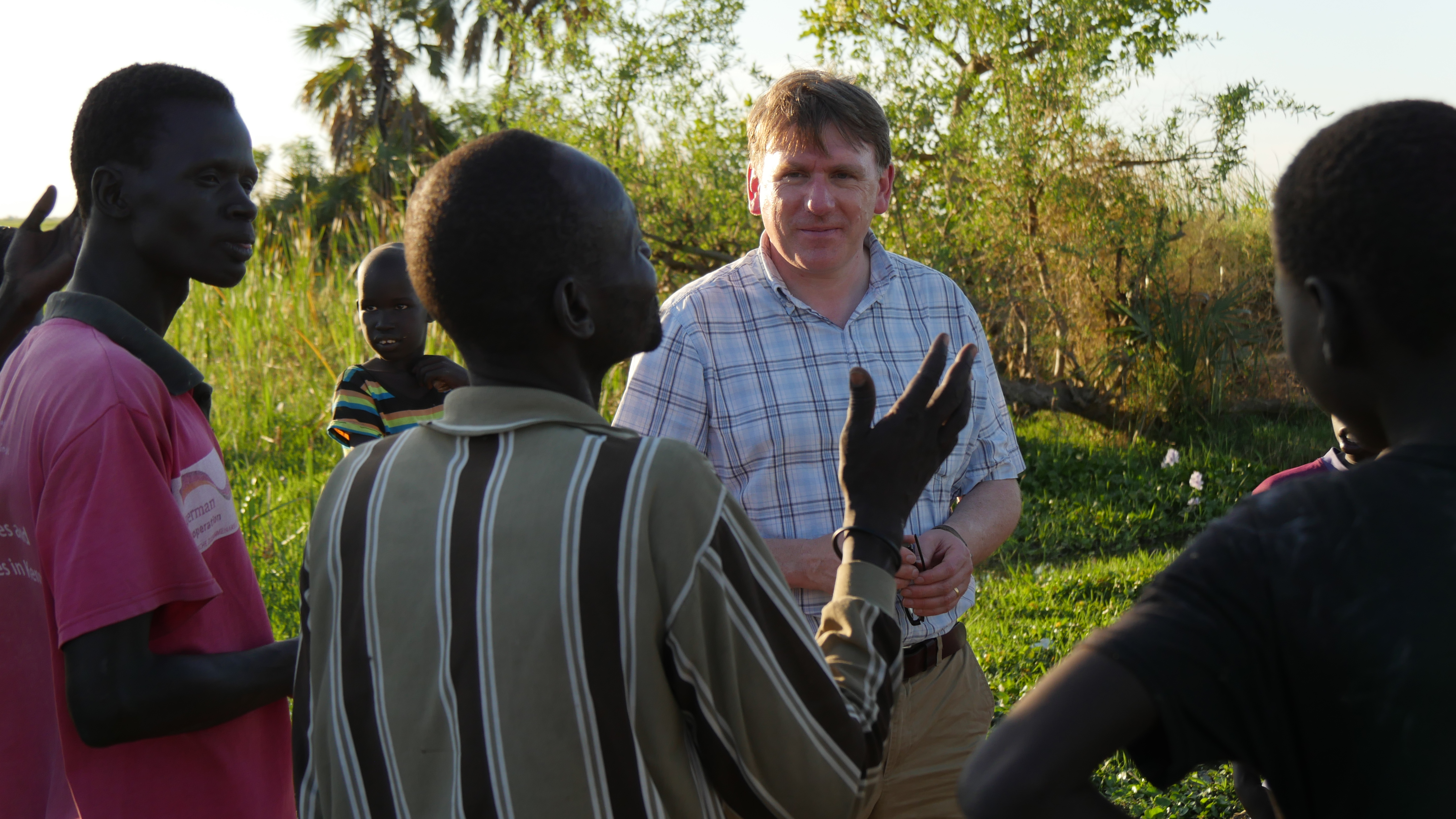
Oxfam Ireland CEO Jim Clarken speaks with local fisherman in Nyal, South Sudan. Credit: Ben Clancy/Oxfam Ireland
People can no longer protect themselves and their families from the destabilising impact of war. There are battles on every front. Inflation rates are so high that the price of even basic foodstuffs is beyond the reach of families. Meanwhile, farmers who have had no choice but to leave their land are missing out on harvests – leaving the country’s food stocks at dangerously low levels.
In February of last year, famine was declared in two counties – Leer and Mayendit. At that time, 100,000 people were facing famine, and one million more were on the brink. A strong humanitarian response has undoubtedly kept famine at bay but the need for aid is more urgent than ever. In fact, an estimated 1.6 million more people are now more at risk than when famine was declared in 2017. And while the United Nations World Food Programme has been carrying out food drops in South Sudan, the supplies aren’t enough for the population which finds itself in a race against time.
During my visit I travelled to the islands around Nyal in Unity State, which have seen a large influx of people fleeing the violence. There I met many people who have been displaced and are now in a dire situation. Many arrived with nothing but the clothes on their backs, joining countless others with shared experiences. It had taken one group of women I spoke to seven days to reach safety. Having endured the harrowing and terrifying journey, they finally got the chance to grieve the children they had lost along the way.
With the support of Irish Aid, Oxfam Ireland is on the ground in Nyal, providing canoes to bring the sick and vulnerable from the islands to access life-saving aid and health care. We have also set up community gardens in the region, which enable people to grow their own food, or sell it to earn an income. And our protection teams are working with girls and women to ensure their safety in a new and unfamiliar environment.

Villagers of RAFONE island gather to meet Oxfam staff and discuss the progress they’ve made since receiving aid. Credit: Ben Clancy/Oxfam Ireland
Yet, despite our best efforts, the humanitarian situation remains dire – and it’s getting worse by the day. With other stories dominating the global headlines, I fear that South Sudan will be forgotten.
There is an onus on all of us to make sure the plight of this young nation is no longer ignored.
